Join our exclusive newsletter for opening guides, tips, and inspiration. Our community of 5,131+ chess enthusiasts is waiting for you.
Don't wait – enter your email below and join now!
I. Chess Camps and Clubs: Where Passionate Players Thrive
Chess camps and chess clubs are vibrant communities that offer chess enthusiasts of all ages and skill levels opportunities to hone their skills, make new friends, and have fun. Joining a chess camp or chess club can be an enriching experience that provides numerous benefits, from improving chess abilities to fostering a sense of camaraderie among fellow players. In this article, we will explore the world of chess camps and chess clubs, highlighting the advantages of being a part of these communities.
II. What Happens at Chess Camp?
At chess camps, participants are immersed in a stimulating environment filled with chess-related activities and experiences. These camps typically offer a range of engaging activities, including chess lessons, practice games, tournaments, puzzles, and interactive workshops. Participants have the opportunity to learn from experienced chess coaches, play against fellow chess enthusiasts, and engage in friendly competitions to improve their skills.
Popular Chess Camps and Unique Features
There are several popular chess camps that offer unique features and experiences for participants. One such camp is the Chess4Life Camp, which focuses on teaching chess skills along with character development, leadership skills, and life skills. The Bay Area Chess Summer Camp, held in the picturesque Bay Area of California, offers a diverse range of chess activities along with outdoor recreational opportunities. Chess Wizards Summer Camp provides a fun and interactive learning experience with chess-themed games, puzzles, and team-building activities. Overnight chess camps, such as the Chess Camp Belgrade, offer an immersive experience where participants can fully immerse themselves in the world of chess and sharpen their skills.
Benefits of Attending a Chess Camp
Attending a chess camp can offer numerous benefits to participants. Firstly, it provides an opportunity to improve chess skills through structured lessons and practice games. Secondly, it fosters a sense of camaraderie among participants, as they share a common interest in chess and can make new friends with similar interests. Moreover, it allows participants to learn from experienced coaches and players, gaining insights and strategies to enhance their gameplay. Additionally, chess camps often promote critical thinking, problem-solving, and concentration skills, which can be beneficial in other areas of life. Furthermore, chess camps can be a fun and enjoyable experience, providing a break from routine and allowing participants to indulge in their passion for chess.
Typical Activities at Chess Camps
| Activity | Description |
|---|---|
| Chess Lessons | Structured lessons on chess rules and strategies |
| Practice Games | Friendly games among camp participants |
| Tournaments | Intra-camp or inter-camp chess tournaments |
| Simultaneous Exhibitions | Exhibition matches against a skilled player |
| Puzzle Solving | Brain-teasing chess puzzles for skill building |
| Chess Variants | Fun variations of chess for added excitement |
| Analysis Sessions | Reviewing and analyzing games for improvement |
| Casual Play | Informal games for practice and enjoyment |
| Social Activities | Team-building games, bonding activities, etc. |
| Outdoor Activities | Physical activities for recreation and exercise |
III. Chess Clubs: A Community for Chess Enthusiasts
Chess clubs are a vibrant community for chess enthusiasts of all ages and skill levels. These clubs provide a supportive and engaging environment where members can come together to play chess, learn from each other, and foster their passion for the game. Chess clubs can be found in local communities, schools, and online, offering a variety of opportunities for chess enthusiasts to connect and improve their skills.
Benefits of Joining a Chess Club
Joining a chess club can offer a range of benefits to chess enthusiasts. One of the main advantages is the opportunity for regular play against other skilled players, which helps to improve gameplay and sharpen strategic thinking. Chess clubs often provide access to resources such as chess books, software, and practice materials, which can enhance learning and skill development. Moreover, being part of a chess club allows members to learn from experienced players, gain insights into advanced strategies, and receive guidance to improve their game. Additionally, chess clubs foster a sense of community and camaraderie among members, providing a platform for social interaction, networking, and making lasting friendships.
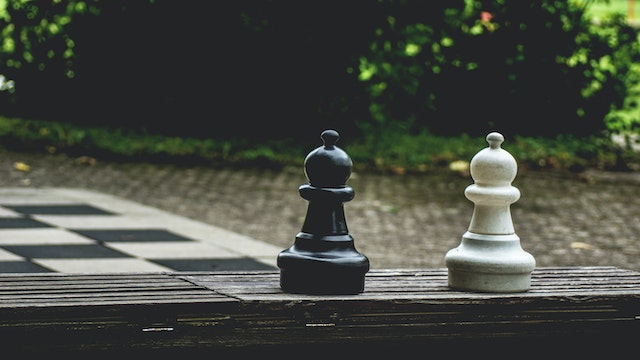
Chess Clubs for Different Age Groups and Skill Levels
Chess clubs cater to a wide range of age groups and skill levels, making it accessible for chess enthusiasts of all backgrounds. Many chess clubs offer programs specifically designed for kids, including academic chess summer camps, where children can learn chess skills in a fun and structured environment. These camps often include chess lessons, practice games, and friendly competitions to engage young chess players and foster their development. Chess clubs for adults provide a platform for experienced players to compete at a higher level, engage in advanced gameplay, and further refine their skills. Some clubs also offer specialized programs for beginners or players with specific skill levels, ensuring that there are opportunities for everyone to learn, play, and thrive in a supportive chess community.
Why You Should Join A Chess Club
| Benefit | Description |
|---|---|
| Skill Development | Opportunities to improve chess skills through practice, coaching, and competition |
| Learning from Peers | Interacting with experienced players for learning and guidance |
| Regular Play | Regular access to chess games for practice and improvement |
| Competition | Participating in club tournaments for competitive play and growth |
| Camaraderie | Building friendships and a sense of community among fellow chess enthusiasts |
| Coaching | Access to coaching and guidance from experienced players or coaches |
| Resources | Access to chess materials, books, software, and other resources |
| Social Interaction | Opportunities for socializing, networking, and making new friends |
| Motivation | Surrounding oneself with like-minded individuals for motivation and inspiration |
| Personal Growth | Developing critical thinking, decision-making, and sportsmanship skills |
IV. How to Improve Your Chess Skills at a Chess Club
Chess clubs provide an excellent opportunity to enhance your chess skills and become a better player. Here are some tips and strategies to make the most of your time at a chess club:
Play Regularly and Analyze Your Games
Regular play is crucial for improving your chess skills. Participate in club competitions, practice games, and friendly matches to hone your skills and gain experience. After each game, take the time to analyze your moves, identifying mistakes and missed opportunities. This will help you learn from your games and improve your gameplay in future matches.
Learn from Experienced Players and Study Chess Materials
Interacting with experienced players at a chess club can be invaluable in your chess journey. Seek advice, ask questions, and learn from their insights and strategies. Additionally, make use of the resources available at the club, such as chess books, software, and online databases, to study and learn from master games, tactics, and strategies. Regularly reading and studying chess materials can help you improve your understanding of the game and develop new skills.
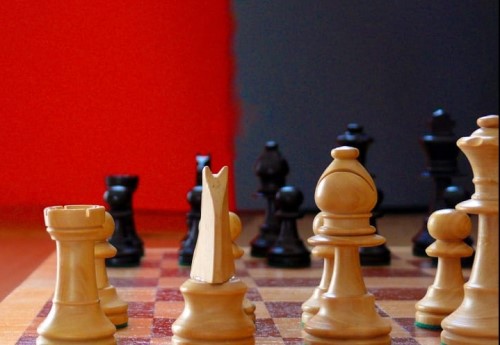
Participate in Club Events and Tournaments
Participating in club events and tournaments is a great way to challenge yourself and improve your skills. These events offer opportunities to compete against players of different skill levels, learn from different playing styles, and gain valuable experience in a competitive setting. Additionally, club events and tournaments foster a sense of community and camaraderie among chess enthusiasts, creating a supportive and engaging environment for learning and growth.
Seek Coaching and Practice Tactics
Consider seeking coaching from experienced players or chess instructors to receive personalized guidance and feedback on your gameplay. They can identify areas for improvement, provide tips on strategic planning, and help you develop effective playing techniques. Additionally, regularly practicing tactics, such as puzzles and exercises, can help you sharpen your tactical skills, which are essential for successful chess gameplay.
Review Your Games
After each game, take the time to review your moves and analyze your gameplay. Identify mistakes, missed opportunities, and areas for improvement. This self-reflection will help you learn from your mistakes and make adjustments in your gameplay, leading to better performance in future games.
How To Improve Your Chess Skill At A Chess Club
| Tip/Strategy | Description |
|---|---|
| Play Regularly | Regularly participate in chess games and practice to improve your playing skills |
| Analyze Games | Analyze your own games and learn from your mistakes and successes |
| Learn from Peers | Seek advice and guidance from experienced players at the club |
| Study Chess Materials | Utilize chess books, websites, software, and other resources to study and learn new strategies |
| Participate in Club Events and Tournaments | Take part in club events, competitions, and tournaments to gain experience and challenge yourself |
| Seek Coaching | Consider getting coaching or lessons from experienced players or coaches to improve your skills |
| Practice Tactics | Regularly practice chess tactics such as puzzles, puzzles, and drills to sharpen your tactical skills |
| Review Your Games | Review your games to identify areas for improvement and learn from your mistakes |
| Set Goals | Set specific goals for your chess improvement and track your progress |
| Be Persistent | Chess improvement takes time and effort, so be patient and persistent in your practice and learning |
V. Chess and Life: Lessons Learned
Chess is not just a game, but also a teacher of valuable life skills and character traits. Here are some lessons that chess can impart:
Critical Thinking and Decision-Making
Chess requires critical thinking and decision-making skills, as players constantly evaluate different moves and their consequences. By analyzing the board, assessing threats, and planning strategies, chess players learn to think critically and make informed decisions. These skills can be applied beyond the chessboard to everyday life situations, such as problem-solving, making decisions under pressure, and evaluating different options.
Patience and Resilience
Chess is a game of patience, as players often need to wait for the right moment to strike or defend. Chess players learn to be patient and wait for opportunities, as rushing can lead to mistakes and losses. Moreover, chess teaches resilience, as players face setbacks and losses but must bounce back and continue to strategize. These qualities of patience and resilience are valuable in life situations where perseverance and endurance are required.
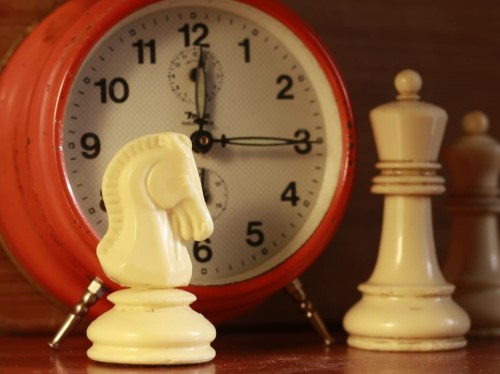
Sportsmanship and Fair Play
Chess promotes sportsmanship and fair play, as players are expected to follow rules, respect their opponents, and show good sportsmanship, regardless of the outcome. Chess players learn to accept defeat graciously, acknowledge their opponent’s skills, and congratulate them on their victory. These qualities of sportsmanship and fair play translate into respectful and ethical behavior in various aspects of life, including competition, teamwork, and social interactions.
Application of Chess Skills in Everyday Life
The skills learned from chess, such as critical thinking, decision-making, patience, resilience, and sportsmanship, can be applied beyond the chessboard to everyday life situations. These skills can be valuable in academic settings, professional environments, and personal relationships. For example, critical thinking and decision-making skills can help in problem-solving at work, while patience and resilience can aid in overcoming challenges in personal life. The lessons learned from chess can contribute to personal growth and success in various aspects of life.
Unlocking Life Skills and Character Traits through Chess Mastery
| Life Skill/Character Trait | Description | Application in Everyday Life |
|---|---|---|
| Critical Thinking | Chess requires analyzing positions, evaluating options, and making strategic decisions | Develops critical thinking skills that can be applied to problem-solving in various real-life situations |
| Decision-making | Chess involves making decisions under pressure and considering consequences of moves | Helps develop effective decision-making skills in various aspects of life |
| Patience | Chess games can be long and require waiting for the right moment to make a move | Teaches patience and the ability to wait for the right timing in different situations |
| Resilience | Chess involves facing setbacks, making mistakes, and bouncing back from defeats | Helps develop resilience and the ability to persevere despite challenges in life |
| Sportsmanship | Chess promotes fair play, respect for opponents, and graceful winning/losing | Fosters sportsmanship and good sports etiquette in various social interactions |
| Concentration | Chess demands concentration and focus to analyze positions and plan moves | Enhances concentration and focus, which can be applied to other tasks that require mental focus |
| Time Management | Chess games have time constraints, requiring players to manage their time effectively | Develops time management skills that can be applied to various areas of life |
| Strategic Planning | Chess involves planning ahead, setting goals, and developing strategies | Cultivates strategic planning skills that can be applied to personal and professional life |
| Adaptability | Chess requires adapting to changing game situations and adjusting strategies | Enhances adaptability and flexibility in dealing with changes and uncertainties in life |
| Social Skills | Chess clubs provide opportunities for social interaction, communication, and teamwork | Improves social skills, communication, and teamwork abilities in a social setting |
VI. Common Questions About Chess Camps and Chess Clubs
As chess camps and chess clubs gain popularity, it’s natural to have questions. Here are some frequently asked questions and their answers:
How much does a chess camp cost?
The cost of chess camps varies depending on the location, duration, and amenities provided. Some camps may offer scholarships or discounts for early registration or multiple siblings. It’s best to check with the specific chess camp for their current pricing.
What should I wear to a chess club?
Chess clubs generally have a casual dress code, so comfortable clothing is recommended. Avoid clothing with distracting graphics or logos that may hinder concentration during games. It’s also advisable to refrain from wearing strong scents that could disturb other players.
At what age is chess best learned?
Chess can be learned at any age, with many chess clubs and camps catering to different age groups. Some chess camps offer programs specifically designed for kids as young as 5 or 6, while others may focus on teenagers or adults. It’s never too late to start learning and enjoying the game of chess.
Does chess have an impact on IQ and ADHD?
Research suggests that playing chess may have cognitive benefits, including potential improvement in IQ scores and concentration skills. However, the impact may vary from person to person, and chess alone may not be a sole determinant of IQ or ADHD. It’s always recommended to consult with a medical professional for individual advice.
What is the average chess club player like?
Chess clubs are diverse and attract players of varying ages, skill levels, and backgrounds. Players at chess clubs can range from beginners to advanced players, with different playing styles and strategies. Chess clubs foster a welcoming and inclusive environment, providing an opportunity to meet fellow chess enthusiasts and learn from each other.
VII. Conclusion
Chess camps and chess clubs offer a host of benefits for chess enthusiasts of all levels. From improving chess skills to fostering a supportive community, these opportunities are worth considering for anyone passionate about chess.
Summarizing the benefits of chess camps and chess clubs, they provide a platform for regular play, analysis of games, learning from experienced players, studying chess materials, participating in events and tournaments, seeking coaching, practicing tactics, and reviewing games. These activities can greatly enhance chess skills and help players improve their game.

Furthermore, chess camps and chess clubs offer a supportive community where players can connect with fellow enthusiasts, learn from each other, and develop friendships. The camaraderie and sportsmanship fostered in such environments can positively impact not only chess skills but also life skills such as critical thinking, decision-making, patience, resilience, and sportsmanship.
In conclusion, joining a chess camp or chess club can be a valuable step in the chess journey. Whether you’re a beginner or an experienced player, the opportunities for learning, practice, and community engagement can be immensely rewarding. So, why not consider joining a chess camp or chess club and take your chess skills to the next level?
Let’s Chat!
What’s your favourite chess opening?
What other questions do you have about chess camps and clubs?
Leave me a comment below!
Peace!
ChessLoversOnly
.
.
.
Let’s Connect!
– Youtube: ChessLoversOnly
– Instagram: Chess.Lovers.Only
– Pinterest: ChessLoversOnly
– Facebook: ChessLoversOnly
– Twitter: ChessLoversOnly


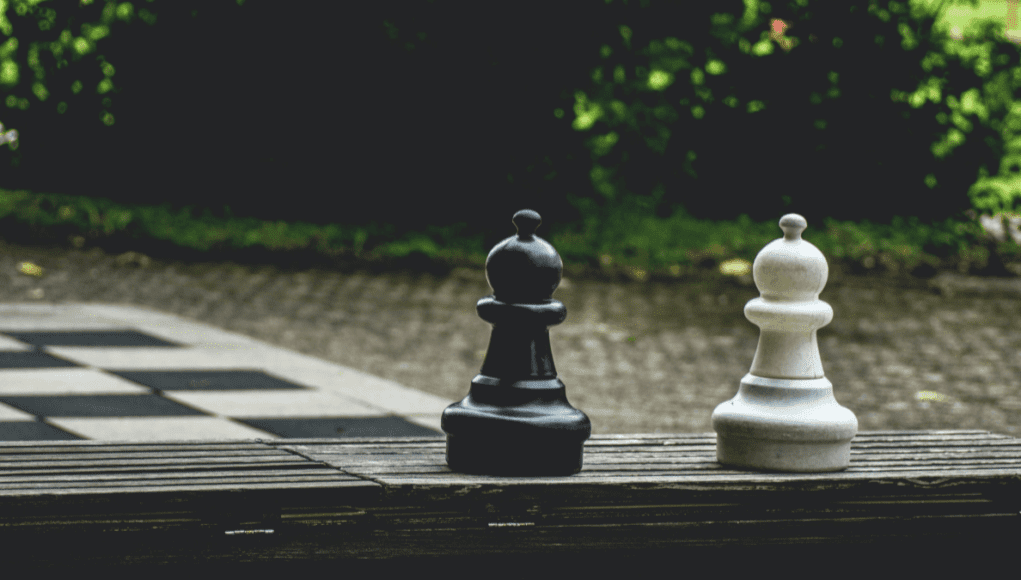


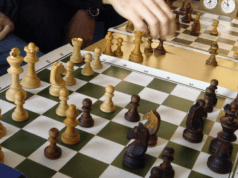


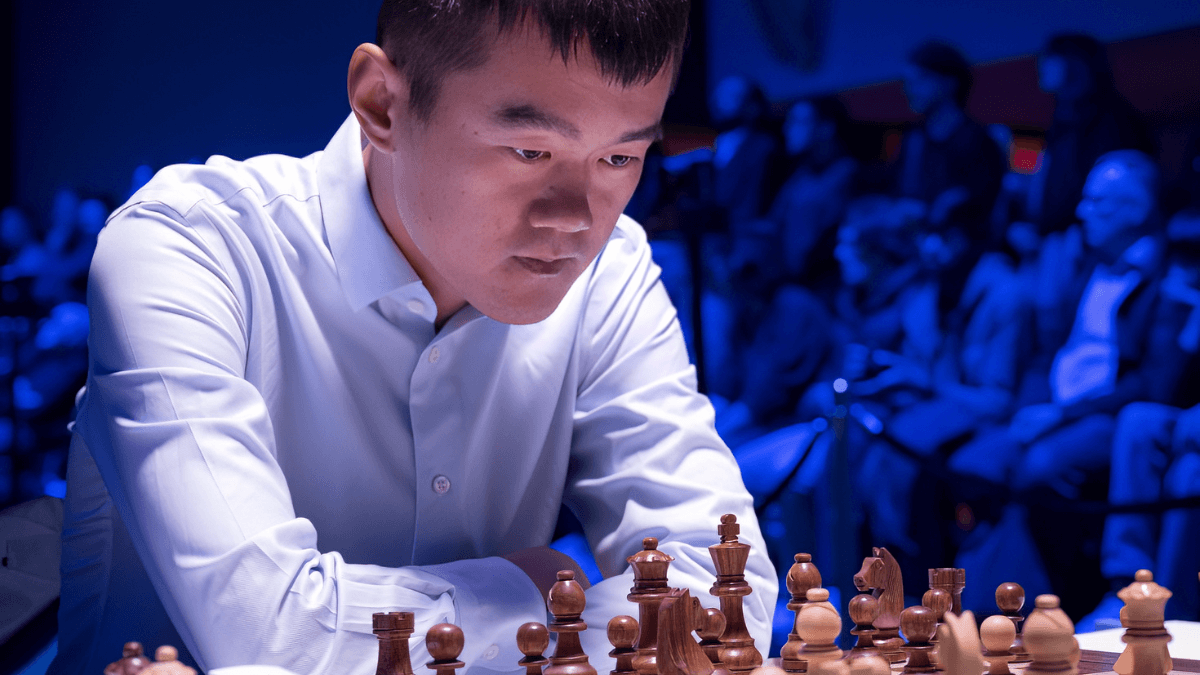







Which one is your favourite chess camp??